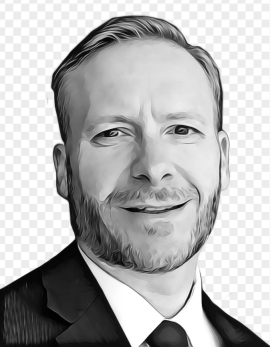How It All Works
The Process
Psychotherapy
Psychological Services
Coaching
Schedule a Free Introductory Meeting
-
This free introductory meeting will allow you to ask questions, learn about the various services, and discover what you'd like to achieve.
The Process
Introduction to Your Therapeutic Journey
Embarking on therapy is a profound step towards understanding oneself, navigating challenges, and encouraging personal growth. I incorporate a variety of approaches in our sessions, drawing from established therapeutic techniques to provide holistic care tailored to your unique needs and specific journey.
-
Psychodynamic Therapy: Delving into your unconscious processes, we'll explore how past experiences might influence present behaviors, emotions, and thoughts. It's a journey to understand deeper motivations and unresolved conflicts.
-
Trauma-Informed Care: Recognizing that trauma can profoundly affect the psyche, this approach ensures that therapy is conducted with an understanding of, and sensitivity to, any past or present traumatic experiences you might have encountered.
-
Solution-Focused Brief Therapy (SFBT): Sometimes, you might need immediate tools or strategies for current challenges. SFBT centers on finding swift solutions and tapping into your inherent resources for coping and resilience.
-
Strength-Based Therapy: Instead of solely focusing on challenges or problematic behaviors, we'll identify and build upon your innate strengths, fostering a sense of empowerment and capability.
-
Cognitive-Behavioural Therapy (CBT): A hands-on approach where we'll work on identifying and reframing negative thought patterns, which can directly influence emotions and behaviors. It offers practical strategies for managing distressing or disruptive emotions.
-
Narrative Therapy: Your life story holds power. Together, we'll explore and rewrite the narratives you've formed about yourself, your experiences, and your relationships, emphasizing a story of resilience, growth, and transformation.
I aim to provide a comprehensive, individualized therapeutic experience by blending these techniques. Every person's journey is distinct, and our collaborative work will reflect the uniqueness of your experiences, aspirations, and challenges.
University Degrees
Licensing
Life Coaching
Step 3
Embarking on Our Therapeutic Journey
Setting the Plan
Starting with Purpose
Staying on Track
Step 1
Initial Consultation for Discovering Our Fit
Step 1 is a complimentary introductory consultation designed to pave the way for a potential therapeutic journey together. Here's what you can expect.
Open Dialogue: Feel free to ask questions and express any concerns. This is your space to explore and understand what this working collaboration might look like.
Understanding My Approach: Gain insights into my psychotherapy methods and philosophy. Each therapist is unique, and it is crucial that you feel aligned with my style.
Share Your Vision: Discuss your goals, challenges, and what you hope to achieve through therapy. It provides me with a clearer picture of your aspirations and allows me to tailor my approach accordingly.
Evaluating Our Synergy: After our discussion, I'll provide feedback on whether our collaboration could be beneficial based on my expertise and your outlined needs. It is vital for both of us to feel that our collaboration will be productive and supportive.
Step 2
Dive Deeper with an Exploration Session
In this focused, 60-minute session, we will delve further into your personal narrative and what you're looking to achieve.
Understanding Your Story: Our conversation will center on understanding the challenges and struggles you're currently navigating, actively listening, and f out where you are and where you want to go.
Collaborative Exploration: Therapy is a partnership. Wk at how my expertise, informed by years of experience and training, can align with your aspirations and needs.
Reassessing Our Fit: While our initial consultation provided a broad understanding, this deeper dive offers another layer of clarity. You must feel comfortable and confident in our therapeutic relationship, ensuring this is your right path.
Step 3
Embarking on Our Therapeutic Journey
Moving forward, our regular meetings will be 60 minutes each. Here's what to expect:
Setting the Plan: In our first session, we'll work together to make a clear plan. We'll decide on our goals and identify areas that need more focus.
Starting with Purpose: Our main aim at the beginning is to ensure we have a clear direction for our sessions. This way, our time will be well-spent and lead to real results.
Staying on Track: Based on our plan, we'll decide how many sessions will be best for your growth and well-being.
Step 4
Navigating Progress Through Ongoing Sessions
As we proceed with our therapeutic journey, each session is a step forward, inching closer to addressing your unique needs and realizing your aspirations:
Consistent Evolution: Our regular meetings provide a platform for continuous reflection and growth. We'll collaboratively ensure that every conversation moves us progressively toward your goals.
Interactive Engagement: I may occasionally introduce tasks or exercises beyond our discussions. These purposeful assignments are designed to bolster self-awareness and growth outside our sessions, giving you tools and insights to integrate into your daily life.
Adaptive Collaboration: Therapy is a dynamic process. As we move forward, it's natural and sometimes necessary to recalibrate. Whether it's adjusting our strategies or refining our objectives, we'll ensure our approach remains aligned with your evolving needs.
Kevin William Grant
Hello, I'm Kevin William Grant. My approach to psychotherapy and coaching is rooted in actionable steps, ensuring that every session translates to meaningful change in your life. My commitment is unwavering: to guide clients through their emotional and mental challenges, steering them towards a life that's not only balanced and healthy but also fulfilling and rewarding.
Drawing from a rich tapestry of therapeutic approaches—ranging from psychodynamic and cognitive to narrative, solution-focused, and trauma-informed—I craft a safe and respectful haven. Here, deep introspection becomes the bedrock for significant personal growth."
Payment Options
-
Payments can be made by credit card, debit card, Apple Pay, or Android Pay.
-
You'll be invoiced and receive receipts that are "Insurance Claim" friendly.

Frequently Asked Questions
Getting the Most out of Your Sessions
Each session integrates meaningful discussion, reflective questioning, self-discovery, strategic planning, and empowering tools, creating a personalized experience tailored to your unique journey.
I prioritize customization, deeply engaging with your story, challenges, and goals to ensure every session meets your specific needs. This tailored approach keeps you consistently progressing toward the transformative results you seek.
I am committed to facilitating growth, resilience, and positive change while addressing any mental health challenges.
Taking the First Step
I encourage you to schedule a complimentary introductory session with me. This initial conversation lets us discuss your needs and determine whether psychotherapy or coaching aligns with your journey.
This initial consultation comes with no fees and no obligation.








